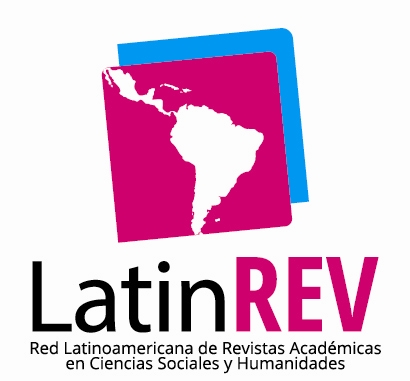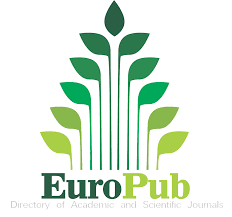Sustentabilidad y desarrollo económico circular
DOI:
https://doi.org/10.62325/10.62325/yachana.v13.n2.2024.892Palabras clave:
Desarrollo económico y social, Responsabilidad social, Desarrollo sostenibleResumen
El estudio tiene como objetivo principal validar la evolución de la teoría de administración, enfocándose en la transición de un enfoque tradicional de creación de valor exclusivo para los accionistas hacia un reconocimiento más amplio de la función social de las empresas. Además, analiza la introducción de la economía circular como una respuesta a los desafíos ambientales, promoviendo la producción sustentable y considerando su papel en el crecimiento económico y la estabilidad de los recursos. Se utilizó un enfoque exploratorio-analítico basado en el análisis de clúster para identificar y comprender las interrelaciones entre la economía circular, la filosofía Cradle to Cradle y la sustentabilidad. La información se recopiló de bases de datos científicas como Scopus® y Web of Science®, permitiendo analizar un amplio conjunto de publicaciones relevantes. El análisis de clústeres reveló tres agrupaciones principales: sustentabilidad, economía circular y desarrollo económico. Estos clústeres mostraron cómo estos conceptos están interrelacionados y cómo pueden integrarse en estrategias empresariales para abordar los desafíos globales de manera efectiva. El dendrograma resultante facilitó la visualización de estas interconexiones y proporcionó una estructura jerárquica clara de los conceptos analizados. La economía circular se presenta no solo como una estrategia ambientalmente responsable, sino también como un paradigma innovador que optimiza los recursos, impulsa la sostenibilidad y promueve una mayor resiliencia en los sistemas industriales.
Descargas
Citas
Armenia, S., Dangelico, R. M., Nonino, F., & Pompei, A. (2019). Sustainable Project Management: A Conceptualization-Oriented Review and a Framework Proposal for Future Studies. Sustainability, 11(9), 2664. https://doi.org/10.3390/su11092664
Bocken, N. M. P., & Short, S. W. (2016, March). Towards a sufficiency-driven business model: Experiences and opportunities. Environmental Innovation and Societal Transitions, 18, 41-61. https://doi.org/10.1016/j.eist.2015.07.010
Bocken, N. M. P., de Pauw, I., Bakker, C., & van der Grinten, B. (2016). Product design and business model strategies for a circular economy. Journal of Industrial and Production Engineering, 33(5), 308-320. https://doi.org/10.1080/21681015.2016.1172124
Dalhousie University. (2018). Environmental Science. In Chapter 12 ~ Resources and Sustainable Development. https://tinyurl.com/22zvsj4h
Diaconu, L., & Popescu, C. C. (2016). Human capital—A pillar of sustainable development. European Journal of Sustainable Development, 5(3), 103–103. https://tinyurl.com/3ynczbj8
Eisenmenger, N., Pichler, M., Krenmayr, N., Noll, D., Plank, B., Schalmann, E., Wandl, M. T., & Gingrich, S. (2020). The Sustainable Development Goals prioritize economic growth over sustainable resource use: A critical reflection on the SDGs from a socio-ecological perspective. Sustainability Science, 15(4), 1101–1110. https://doi.org/10.1007/s11625-020-00813-x
Ellen MacArthur Foundation. (s.f.). What is a circular economy? Circular economy introduction. Recuperado el 10 de abril de 2024, de https://tinyurl.com/mvvwrpj4
Ferreira, V., Pié, L., & Terceño, A. (2018). A systematic literature review of bio, green and circular economy trends in publications in the field of economics and business management. Sustainability, 10(11), 4232. https://doi.org/10.3390/su10114232
Friedman, M. (1970, September 13). A Friedman doctrine - The Social Responsibility of Business is to Increase its Profits. The New York Times Magazine. https://tinyurl.com/587kd4k2
Geissdoerfer, M., Savaget, P., Bocken, N. M. P., & Hultink, E. J. (2017, February 1). The Circular Economy A new sustainability paradigm? Journal of Cleaner Production, 143, 757-768. https://doi.org/10.1016/j.jclepro.2016.12.048
Ghisellini, P., Cialani, C., & Ulgiati, S. (2016, February 15). A review on circular economy: The expected transition to a balanced interplay of environmental and economic systems. Journal of Cleaner Production, 114, 11-32. https://doi.org/10.1016/j.jclepro.2015.09.007
Kerekes, S., Marjainé Szerényi, Z., & Kocsis, T. (2018). Sustainability, environmental economics, welfare. Corvinus University of Budapest. https://tinyurl.com/5n8rr6pm
Kerner, P., Kalthaus, M., & Wendler, T. (2023, October). Economic growth and the use of natural resources: Assessing the moderating role of institutions. Energy Economics, 126, Article 106942. https://doi.org/10.1016/j.eneco.2023.106942
Kibert, C. J., Thiele, L., Peterson, A., & Monroe, M. (2012). The Ethics of Sustainability. https://tinyurl.com/bdedrwsh
Kirchherr, J., Reike, D., & Hekkert, M. (2017, December). Conceptualizing the circular economy: An analysis of 114 definitions. Resources, Conservation and Recycling, 127, 221-232. https://doi.org/10.1016/j.resconrec.2017.09.005
Klarin, T. (2018). The Concept of Sustainable Development: From its Beginning to the Contemporary Issues. Zagreb International Review of Economic and Business, 21(1), 67-94. https://tinyurl.com/y4pf887t
Krajacic, G., Vujanovic, M., Duic, N., Kilkis, S., Rosen, M. A., & Al-Nimr, M. A. (2018, March 18). Integrated approach for sustainable development of energy, water and environment systems. Energy Conversion and Management, 159, 398–412. https://doi.org/10.1016/j.enconman.2017.12.016
Lacy, P., & Rutqvist, J. (2015). Waste to wealth: The circular economy advantage. Springer.
Lieder, M., & Rashid, A. (2016, March 1). Towards circular economy implementation: a comprehensive review in context of manufacturing industry. Journal of Cleaner Production, 115, 36-51. https://doi.org/10.1016/j.jclepro.2015.12.042
Mansilla-Obando, K., Jeldes-Delgado, F., & Guiñez-Cabrera, N. (2022). Circular Economy Strategies with Social Implications: Findings from a Case Study. Sustainability, 14(20), 13658. https://doi.org/10.3390/su142013658
McDonough, W., & Braungart, M. (2002). Cradle to Cradle: Remaking the Way We Make Things. North Point Press.
Porter, M. E., & Kramer, M. R. (2011, January/February). Creating Shared Value. How to reinvent capitalism -and unleash a wave of innovation and growth. Harvard Business Review [Reprint R101C]. https://tinyurl.com/2bjjbm7u
Rockström, J. (2024). Reflections on the past and future of whole Earth system science. Global Sustainability. Cambridge University Press. https://tinyurl.com/mry9a4tw
Roffé, M. A., & González, F. A. I. (2024). The impact of sustainable practices on the financial performance of companies: A review of the literature. Visión de Futuro, 28(1), 221-240. https://doi.org/https://doi.org/10.36995/j.visiondefuturo.2023.28.01.006.en
Rosen, M. A. (2017). Sustainable development: A vital quest. European Journal of Sustainable Development Research, 1(1), 2. https://doi.org/10.20897/ejosdr.201702
Rosen, M. A. (2020). Sustainability: Concepts, Definitions, and Applications. En Building Sustainable Cities (pp. 15-26). doi:10.1007/978-3-030-57469-6_3
Ruggerio, C. A. (2021). Sustainability and sustainable development: A review of principles and definitions. Science of The Total Environment, 786, 147481. https://doi.org/10.1016/j.scitotenv.2021.147481
Shayan, N. F., Mohabbati-Kalejahi, N., Alavi, S., & Zahed, M. A. (2022). Sustainable Development Goals (SDGs) as a Framework for Corporate Social Responsibility (CSR). Sustainability, 14(3), 1222. https://doi.org/10.3390/su14031222
Shrivastava, P., Stafford Smith, M., O'Brien, K., & Zsolnai, L. (2020). Transforming Sustainability Science to Generate Positive Social and Environmental Change Globally. One earth (Cambridge, Mass.), 2(4), 329–340. https://doi.org/10.1016/j.oneear.2020.04.010
UNEP. (2019, October 21). Decoupling natural resource use and environmental impacts from economic growth (Summary). United Nations Environment Programme. https://tinyurl.com/28rnejbk
United Nations. (1987). Report of the World Commission on Environment and Development: Our Common Future. https://tinyurl.com/bdhxhvds
Publicado
Cómo citar
Número
Sección
Licencia
Derechos de autor 2024 Yachana Revista Científica

Esta obra está bajo una licencia internacional Creative Commons Atribución-NoComercial 4.0.





















